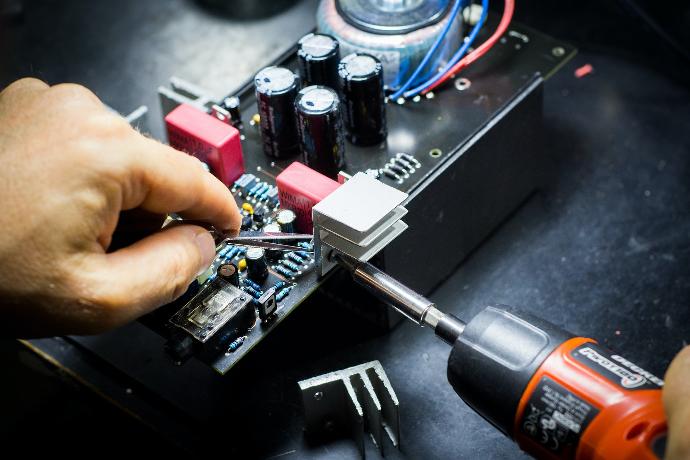Power Electronics
In today's global landscape, various analog or digital electronic devices play a crucial role in different sectors, ranging from industrial and healthcare to national security and personal electronics. Behind each such device lies the strength of power electronics, ensuring efficient and stable functionality.
Power electronics contribute to emerging trends in energy sources, eco-friendly electric transportation systems, and advancements in microelectronics with high efficiency and precision. The key to unlocking the full potential of powerful electronics lies in understanding and studying the reliable performance of electronic devices in various applications.
These advancements encompass:
- Conversion of electrical energy (AC/DC, DC/DC) with minimal losses and reduction of electromagnetic noise.
- Ensuring stability and reliability of powerful electronic systems, especially critical infrastructures for electrical power distribution.
- Reduction of heat dissipation and efficient cooling during electrical energy conversion, ensuring the longevity and optimal functioning of electronic components.
- Integration of efficient energy generation sources into the city's electrical grid.
- Miniaturization of modules for electrical power systems - reducing physical size and weight, crucial for mobile and high-density electronics.
- Rapid adaptation in the use of powerful electronics for economic sustainability and quick response in various applications.
Understanding and implementing these aspects contribute to the continued growth and utilization of powerful electronics in our rapidly evolving technological landscape.
Our Focus Areas in Power Electronics
Renewable Solar/Wind Energy
"Green Economics" signifies the utilization of renewable energy sources. The potential of solar and wind energy is a primary source for renewable energy systems.
Central to this concept is the effective planning and implementation of renewable energy systems, along with the exploration of significant challenges such as:
- MPPT Algorithms: Research and optimization of Maximum Power Point Tracking (MPPT) algorithms to maximize the extraction of electrical energy from solar panels.
- Integration into Public Grid network: Design and project planning for the integration of inverter and accumulation systems into urban energy grids.
- Hybrid System Design: Design and project planning for hybrid energy systems that combine solar, wind, and energy storage systems.


Power Supply Systems (Rectifiers/Inverters)
The EIERC's Powerful Electronics team prioritizes the challenge of compact, high-frequency power inverter projects for various industrial applications.
Our work includes:
- Compact High-Frequency Transformer Projects for different industrial uses.
- Project planning for multiple-megawatt inverter systems, aiming for stable AC power supply suitable for both commercial and industrial applications.
- Research on resonant conversion technologies for high efficiency and minimal electromagnetic interference.
By addressing these challenges, we aim to contribute to the efficient utilization of renewable energy and the development of powerful electronic systems.